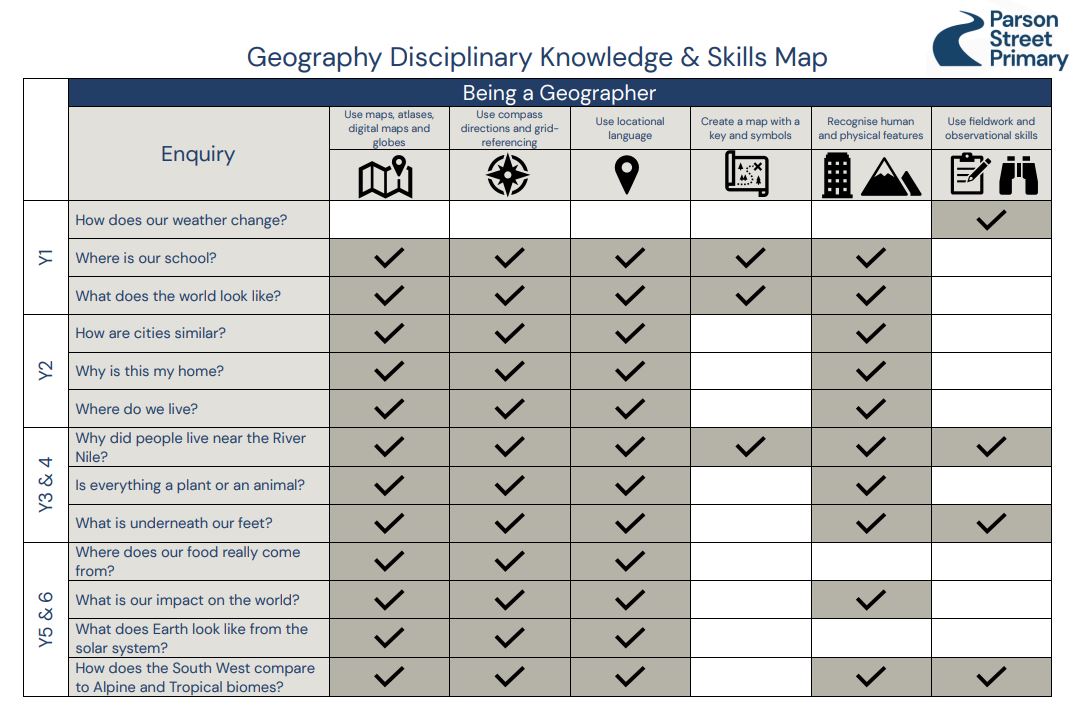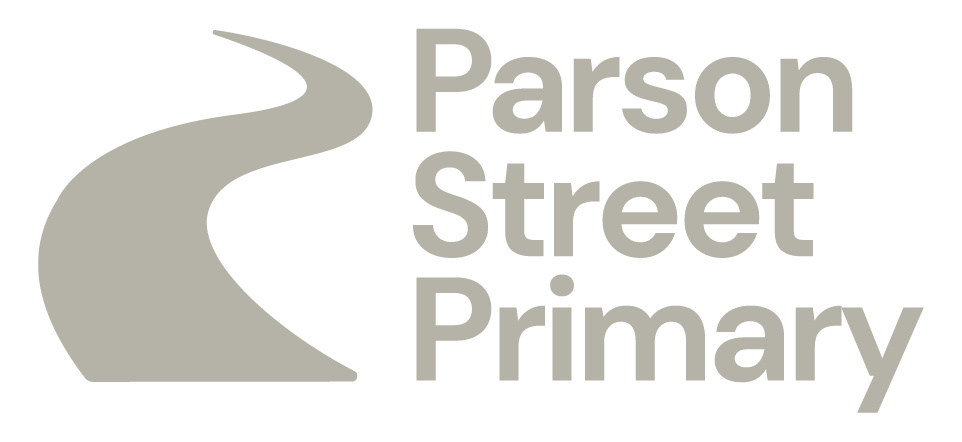At the centre of all our wider curriculum subjects is the ambition to create a culture that inspires curiosity, confidence and responsibility. We aim to provide a broad and balanced education, full of rich experiences and opportunities that gives our pupils the skills, knowledge and resilience to be lifelong learners. Some of our subjects at Parson Teach are taught through the use of an enquiry-led curriculum inspired by Curious Cities where children are “being” rather than “doing” (States of Being). Geography, History and Science are taught through enquiry questions which aim to immerse and challenge children whilst inspiring their curiosity.

People, Places and Stories
Our curriculum is rooted in local people, places and stories. When personalising our curriculum, we believed it was vital that our children develop a secure understanding of their local and wider community, and how they fit into this as individuals. At Parson Street, we have a community of seven Wards and therefore a number of differing communities. At the same time, our children are part of the wider Bristol community. Our curriculum is developed to embrace this exciting and ever-changing environment. The world around our children is becoming increasingly diverse and includes many people of different religions, languages, economic groups and cultures. Our curriculum explicitly teaches this to the children and seeks out opportunities to explore and celebrate it further. We value the importance of local history and how, through learning about our past, we better prepare children for their future.
Alongside our children’s understanding of their local and wider community, we educate our children about the wider global issues we currently face. Our curriculum ensures our children are successful members in their local community, but also develops each of them as global citizens, individuals who will one day become confident, and competent agents of change. We aspire to foster in our children a sense of belonging, responsibility and passion within a global community, where children can effectively articulate, discuss, debate and question; solving the problems of tomorrow.
If you would like to know more about our enquiry curriculum, have a look at the subject overviews for Geography, Science and History which further detail their subject-specific intents and how they are implemented at Parson Street.
Geography Curriculum Overview 23-24
History Curriculum Overview 23-24
Science Curriculum Overview 23-24
Below you will see an outline of all of our enquiry units which are covered throughout the year from Reception to Year 6.
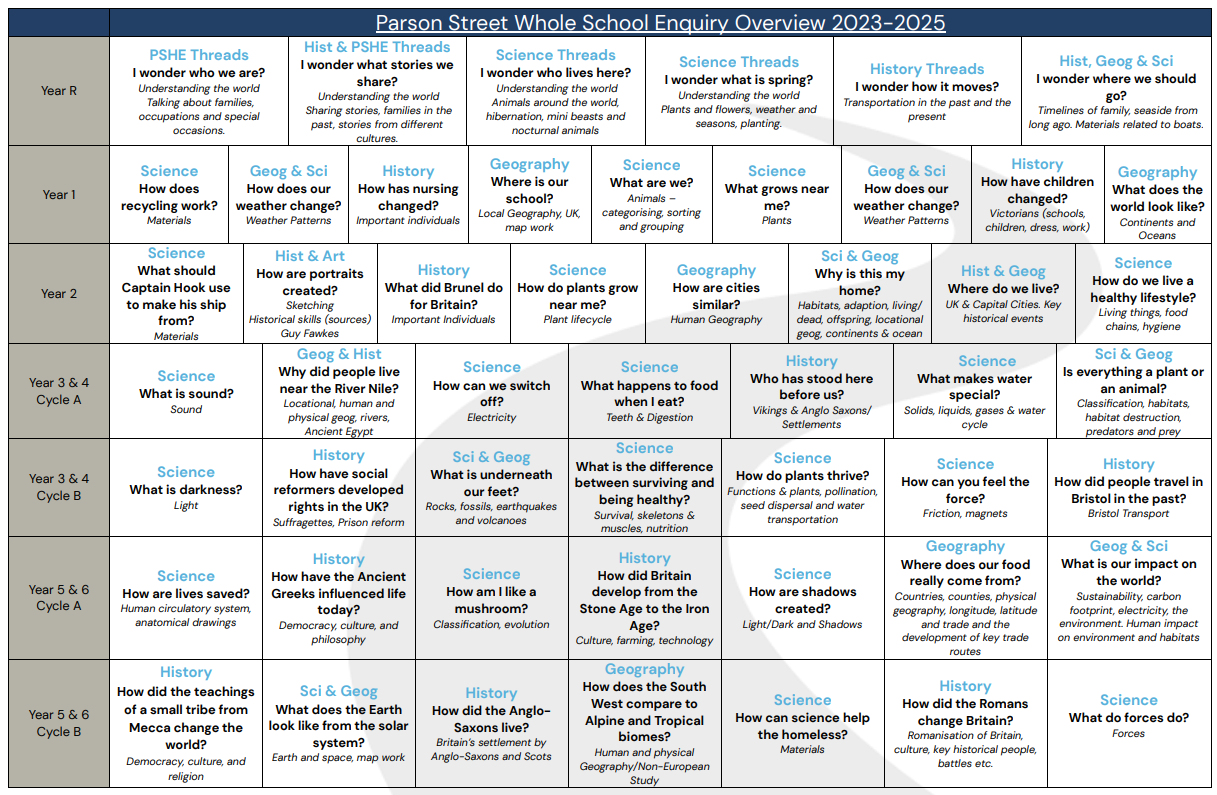
Journey Maps
Our Journey Maps showcase each child’s journey through a State of Being (curriculum subject) during their time at Parson Street.
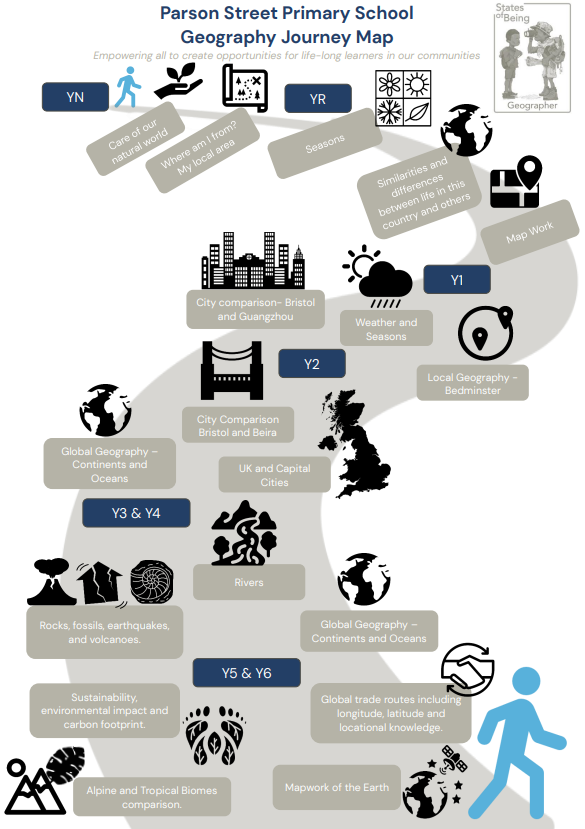
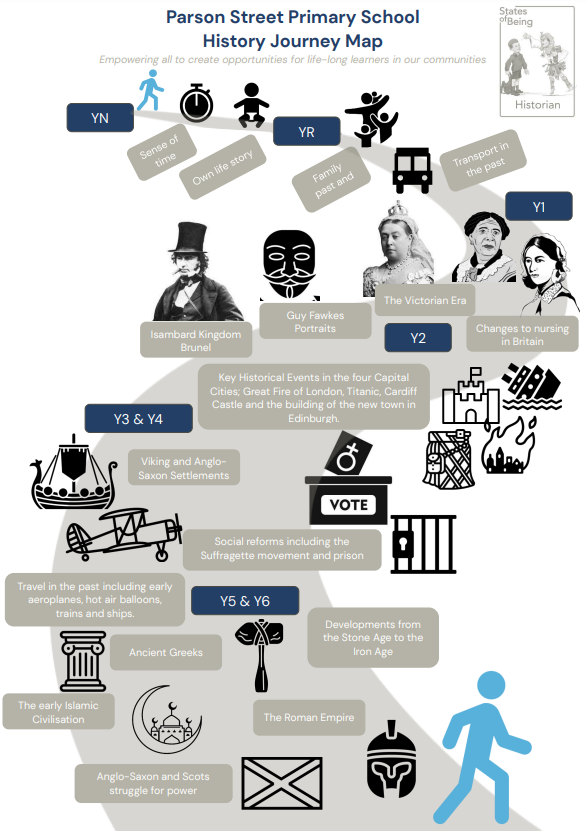
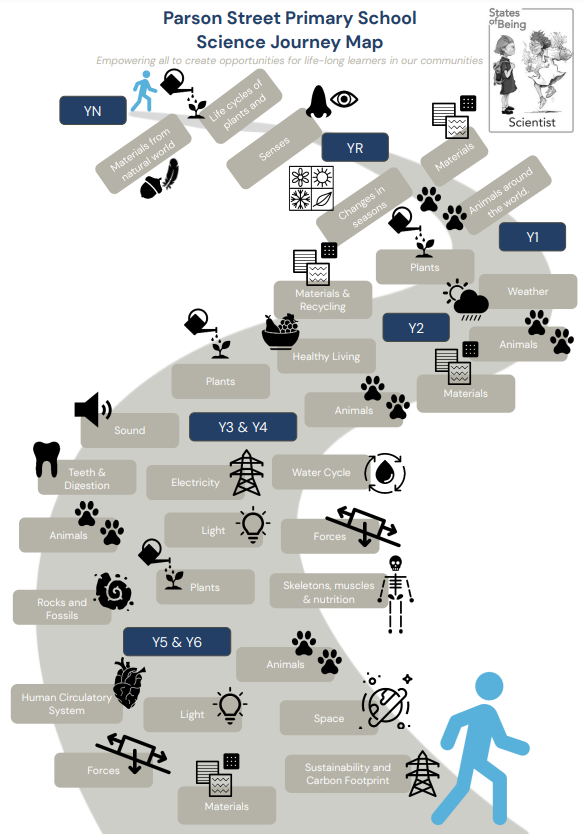
Concept Maps
Within many of our subjects, the curriculum has been planned so that specific concepts are re-covered and built upon in later year groups. Our concept maps outline key concepts within subjects and highlight where specific concepts will be taught and reviewed.
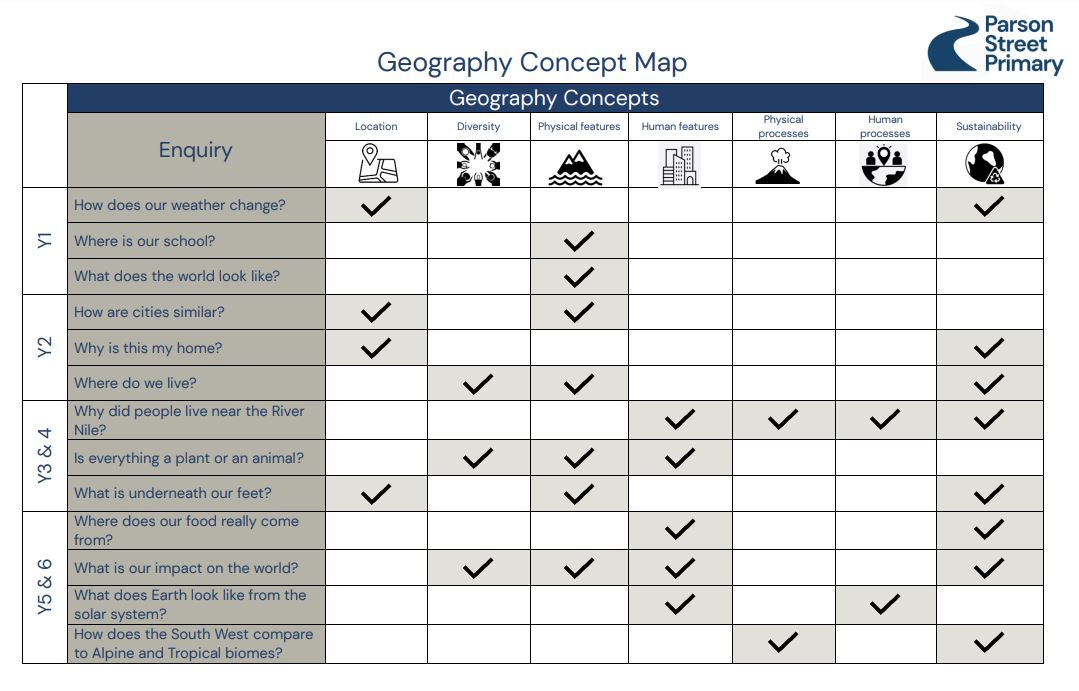
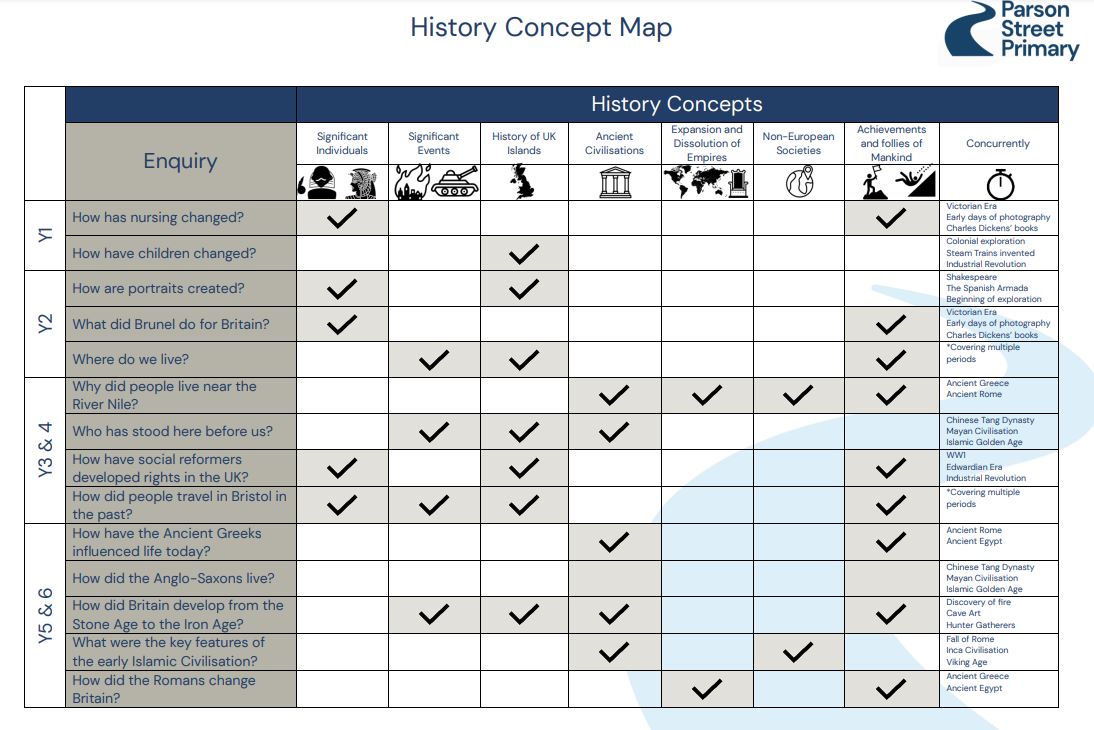
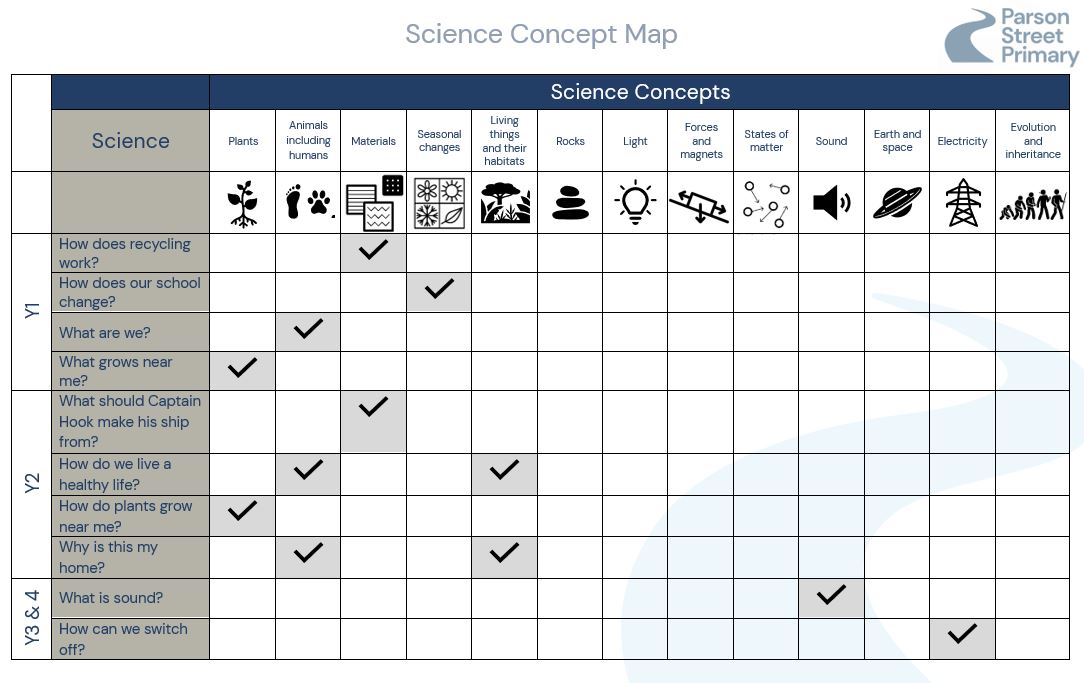
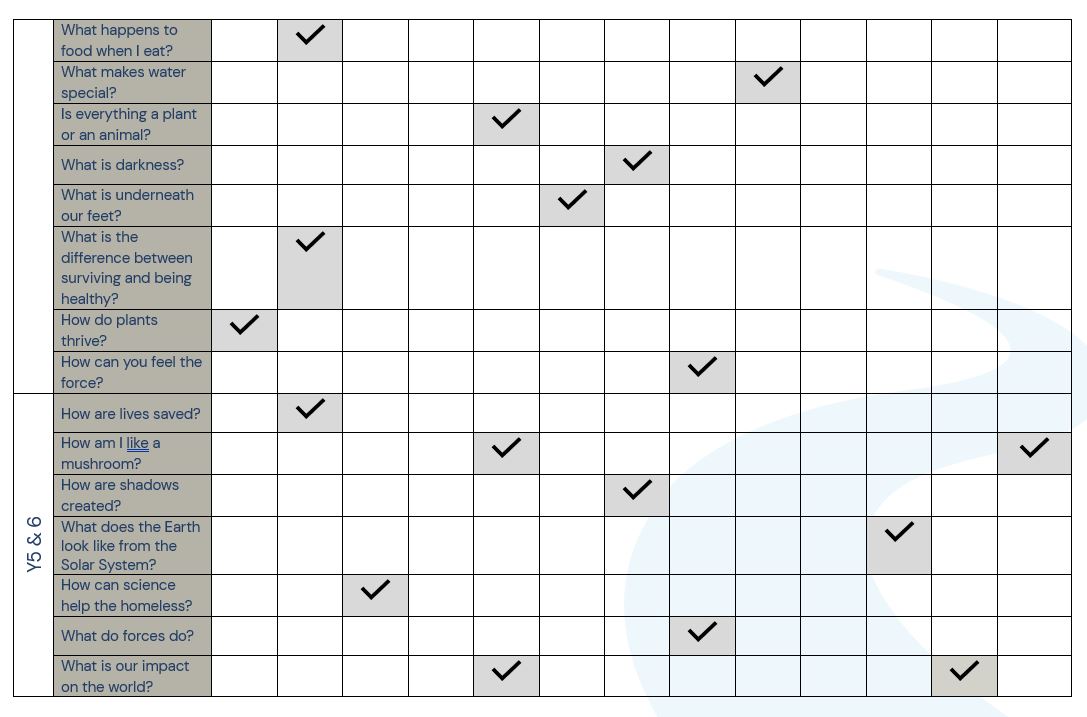
Curriculum Structure
As a school, we understand the vital yet interdependent roles that knowledge and skills have in order to achieve academic success. Children require substantive knowledge in order to practise and develop skills whilst also requiring disciplinary skills in order to acquire the knowledge. This is something that has been meticulously considered and explored when designing our curriculum. Across all subject areas, children at Parson Street are given the opportunity to both ‘learn’ and ‘practise’. This is illustrated in the above diagram. Children may read, talk or write in order to acquire new knowledge. This could be in the form of debates, note taking or reading new information. Children are then given opportunities to embed this new knowledge by practising a skill. For example, children may learn that there are seven continents as part of their Geography learning. They may learn this knowledge by using the skill of looking at/studying maps. Through this process, children are ‘being Geographers’ which builds fluency within the subject.
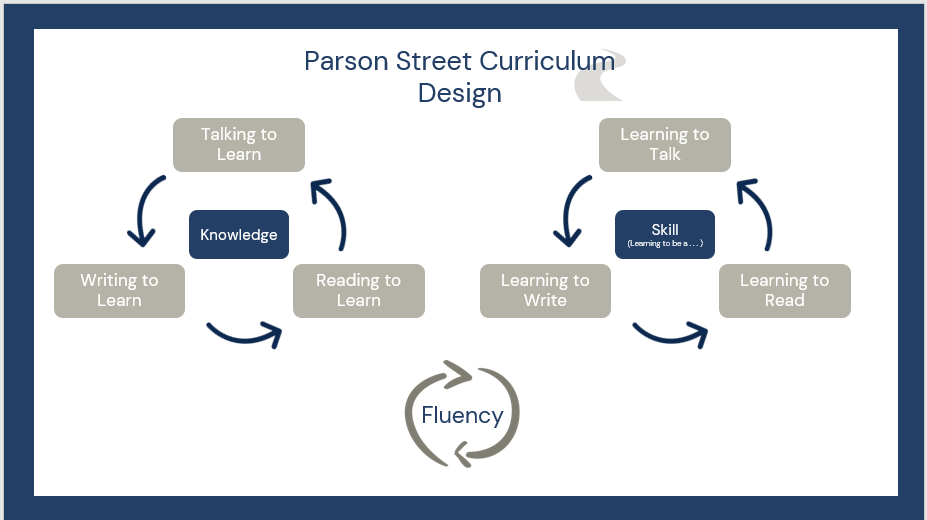
Knowledge Organisers
Throughout the last year, we have been focused as a school on pinning down the knowledge being taught in each unit. Through this process, we have ensured that all knowledge is relevant, purposeful and builds upon what has been previously taught. By explicitly outlining the knowledge, we are in a better position to ensure that children are retaining this knowledge long term. We refer to our knowledge organisers in each lesson and children can use these to help support their learning. There is also explicit identification of the Tier 2 and Tier 3 Vocabulary taught in each unit so that we can ensure children are being given the cultural capital to accurately verbalise and discuss their learning.
Below are some examples of the Knowledge Organisers used in our units.
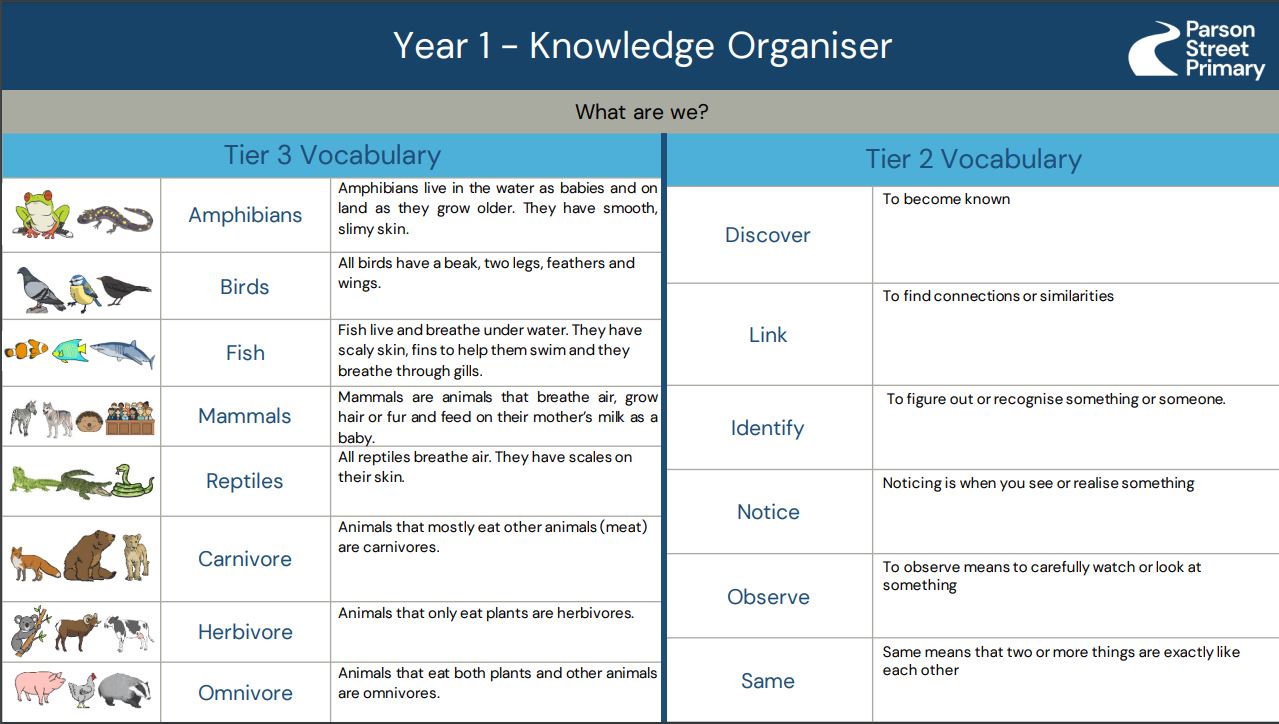
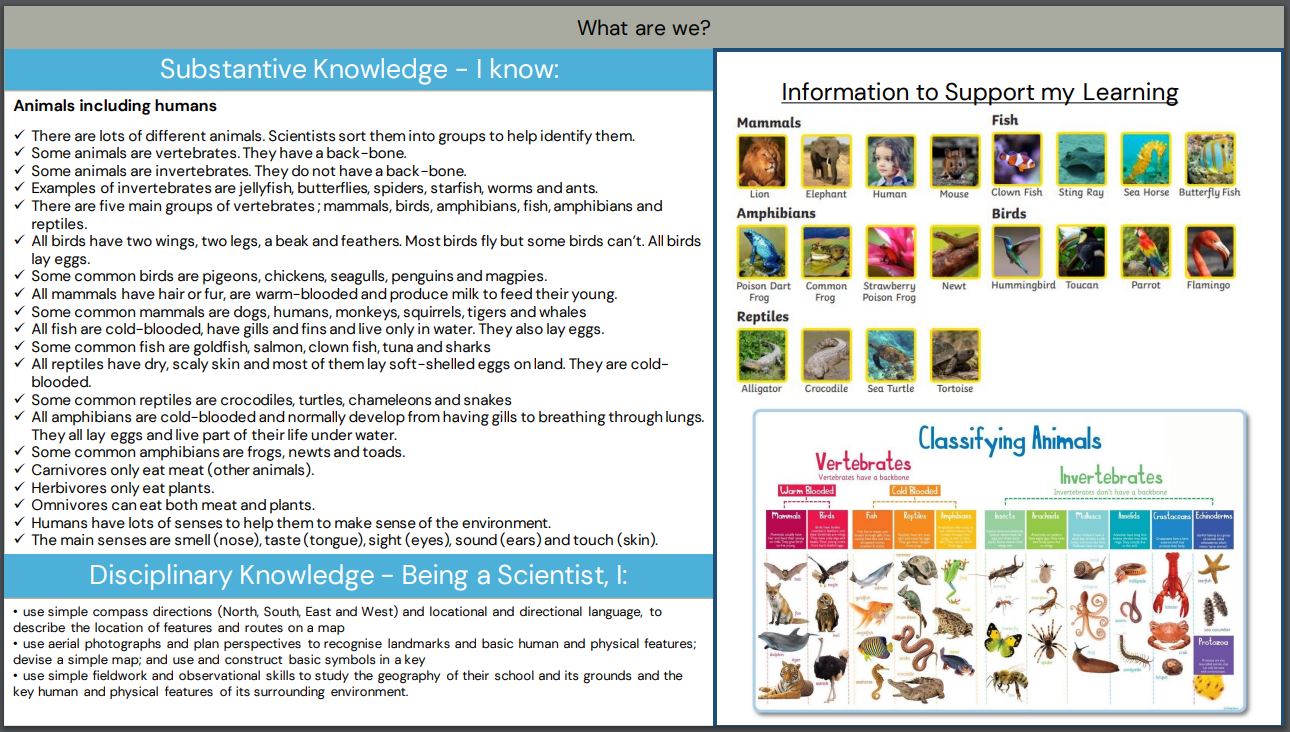
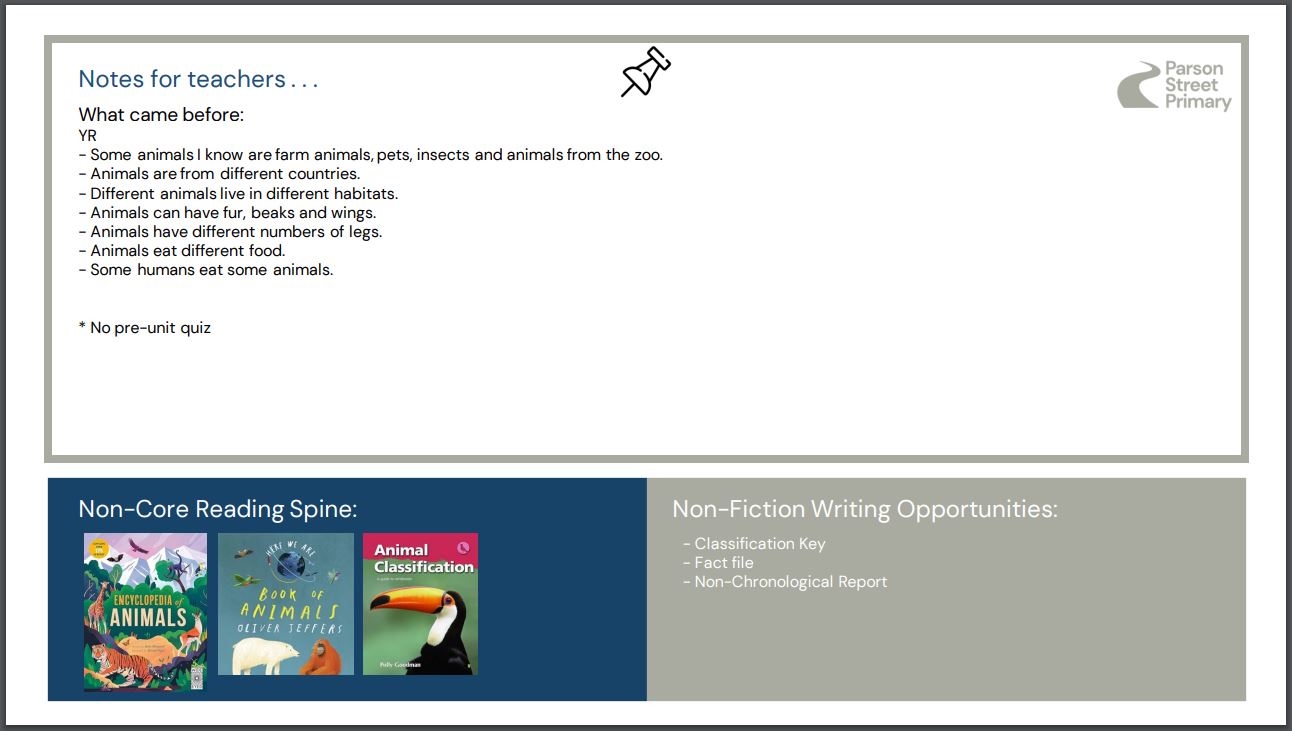
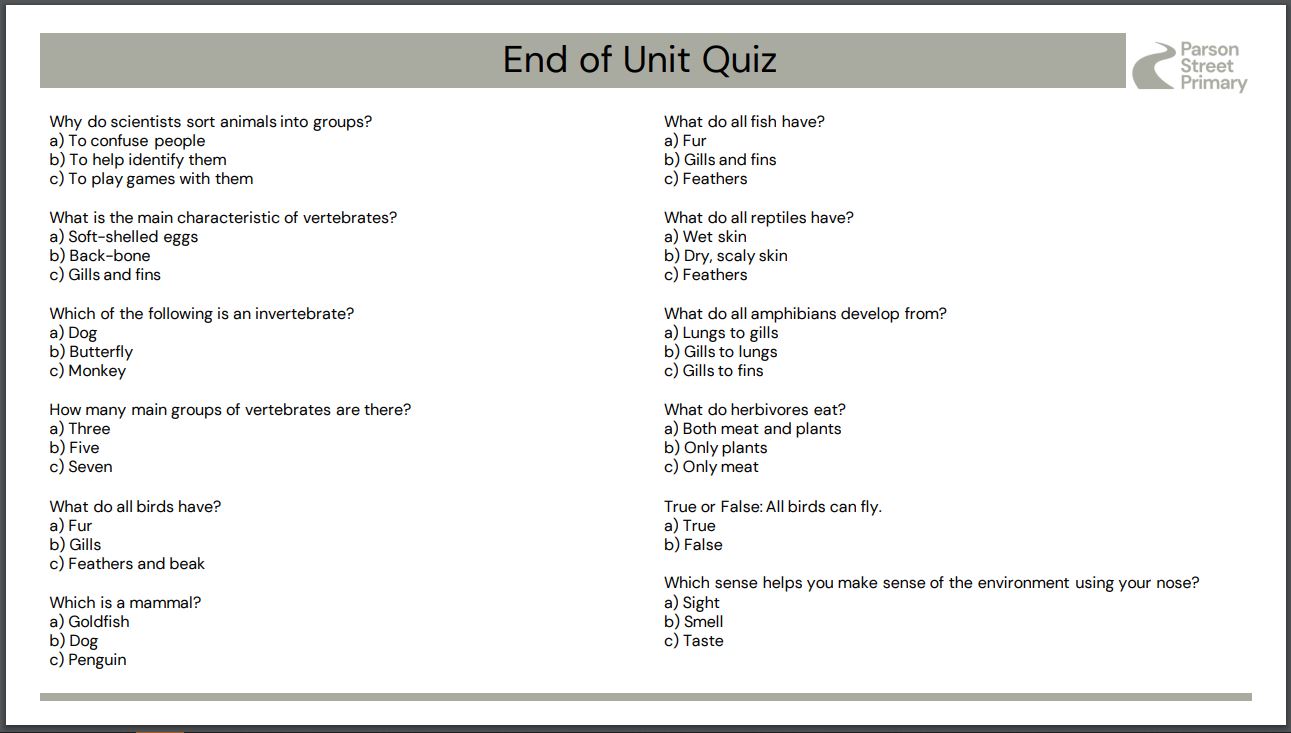
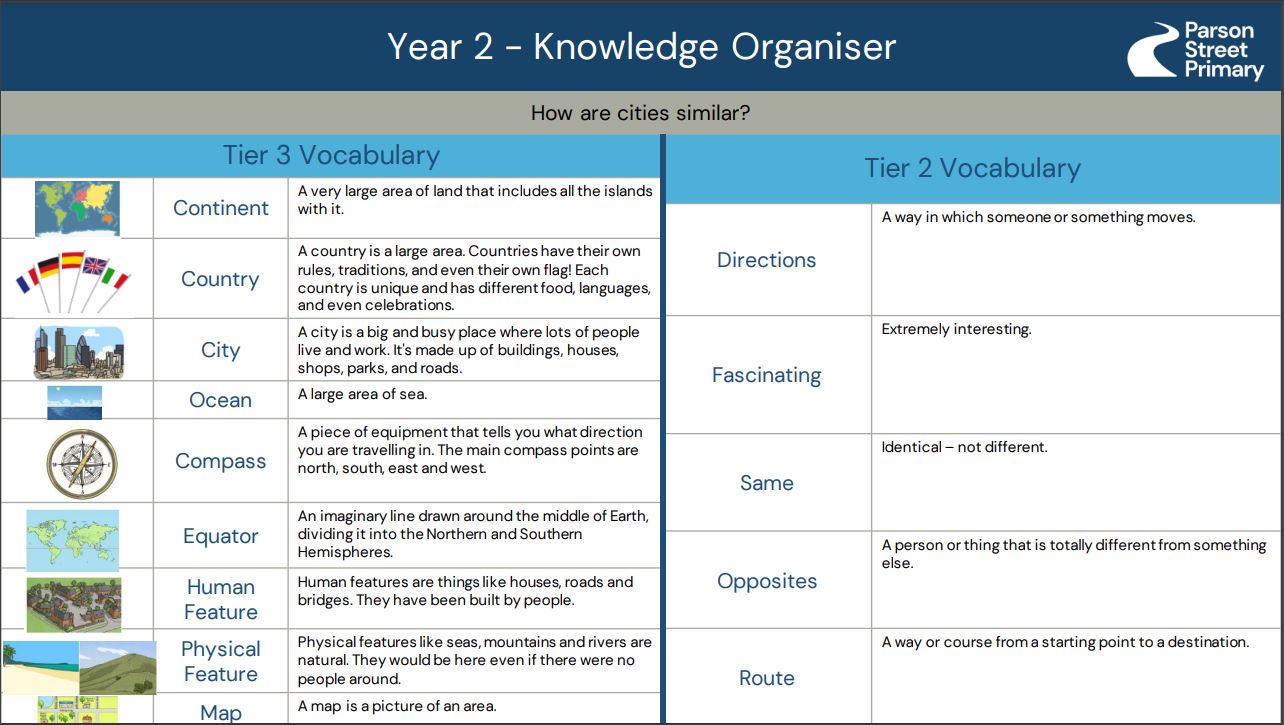
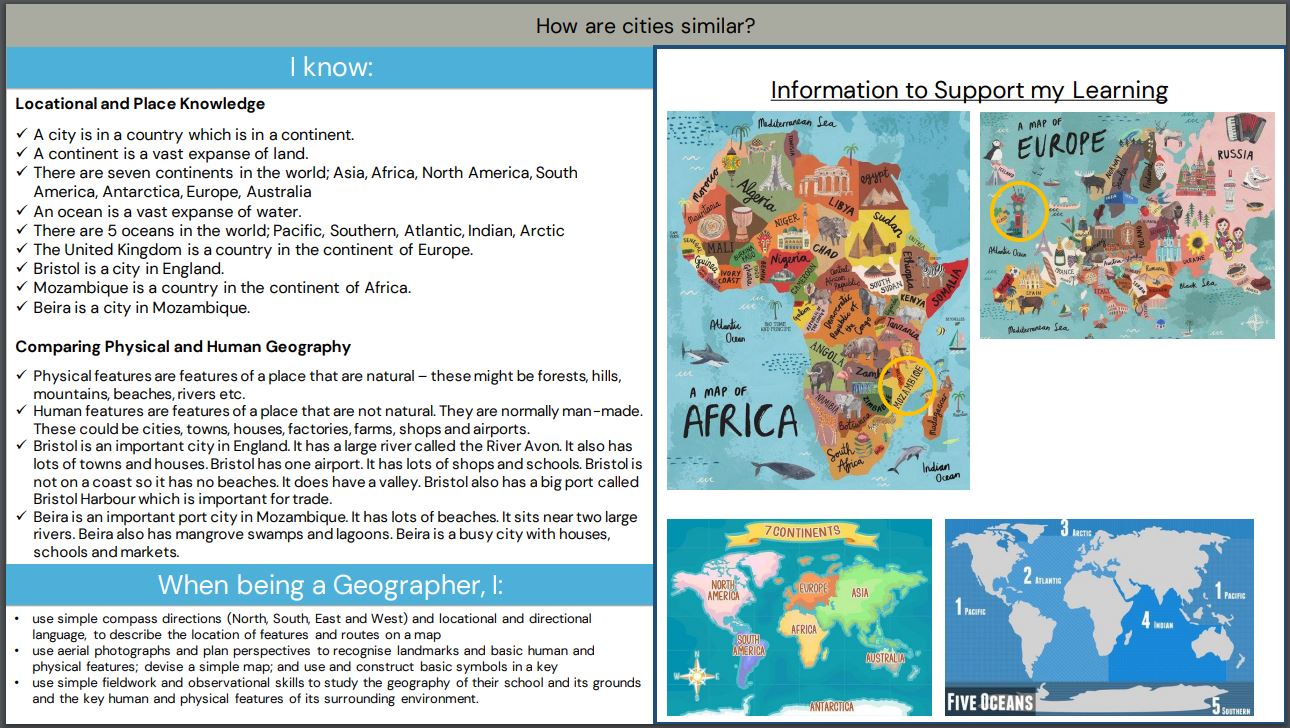
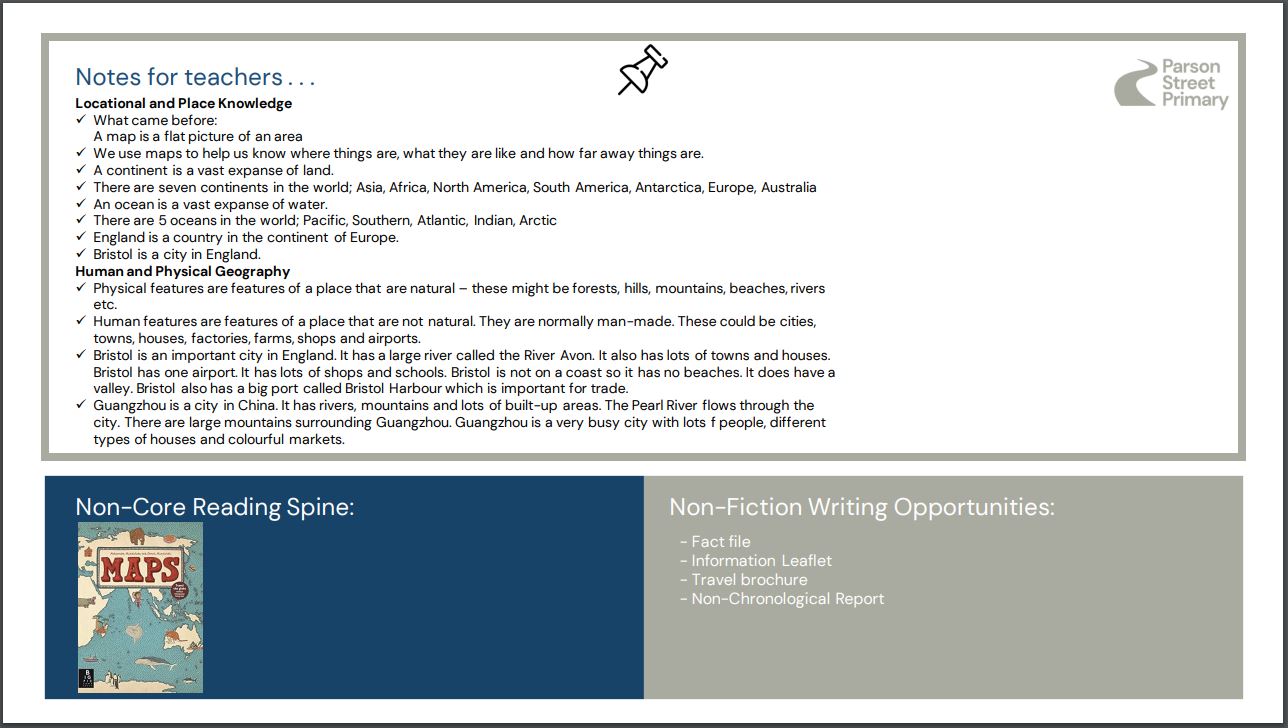
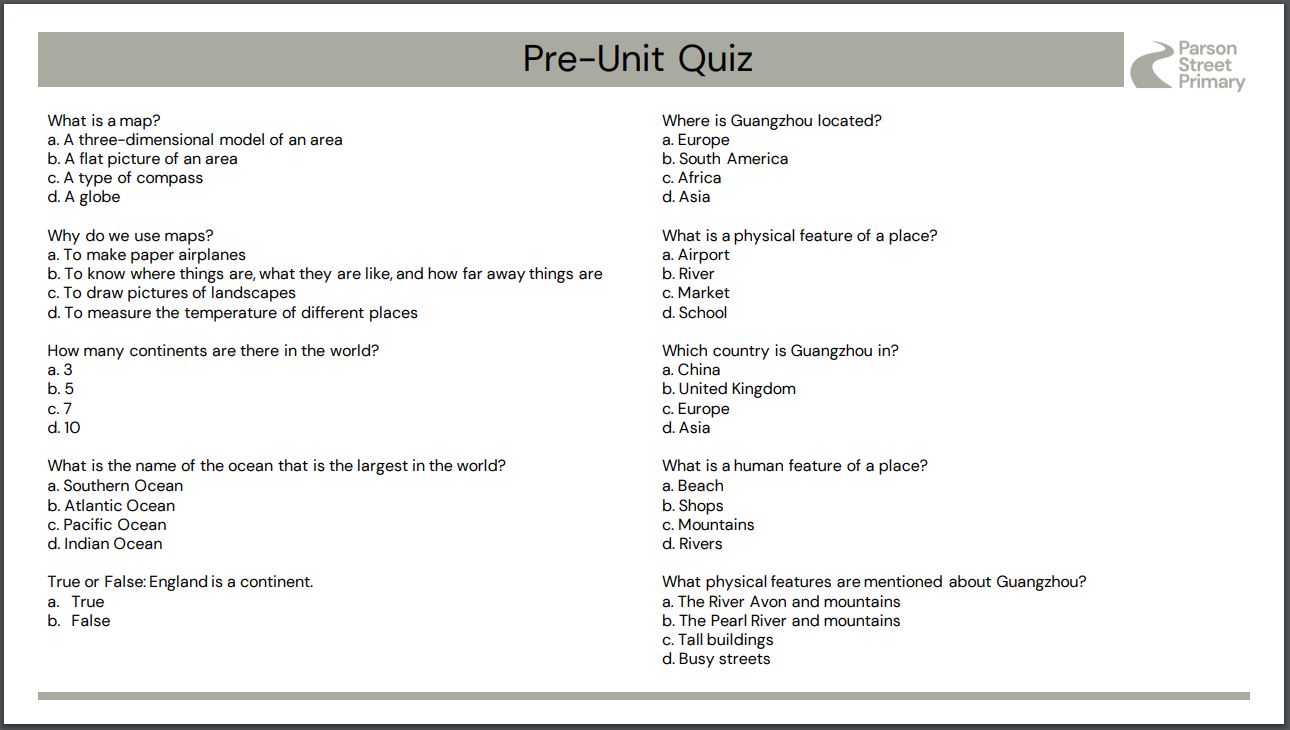
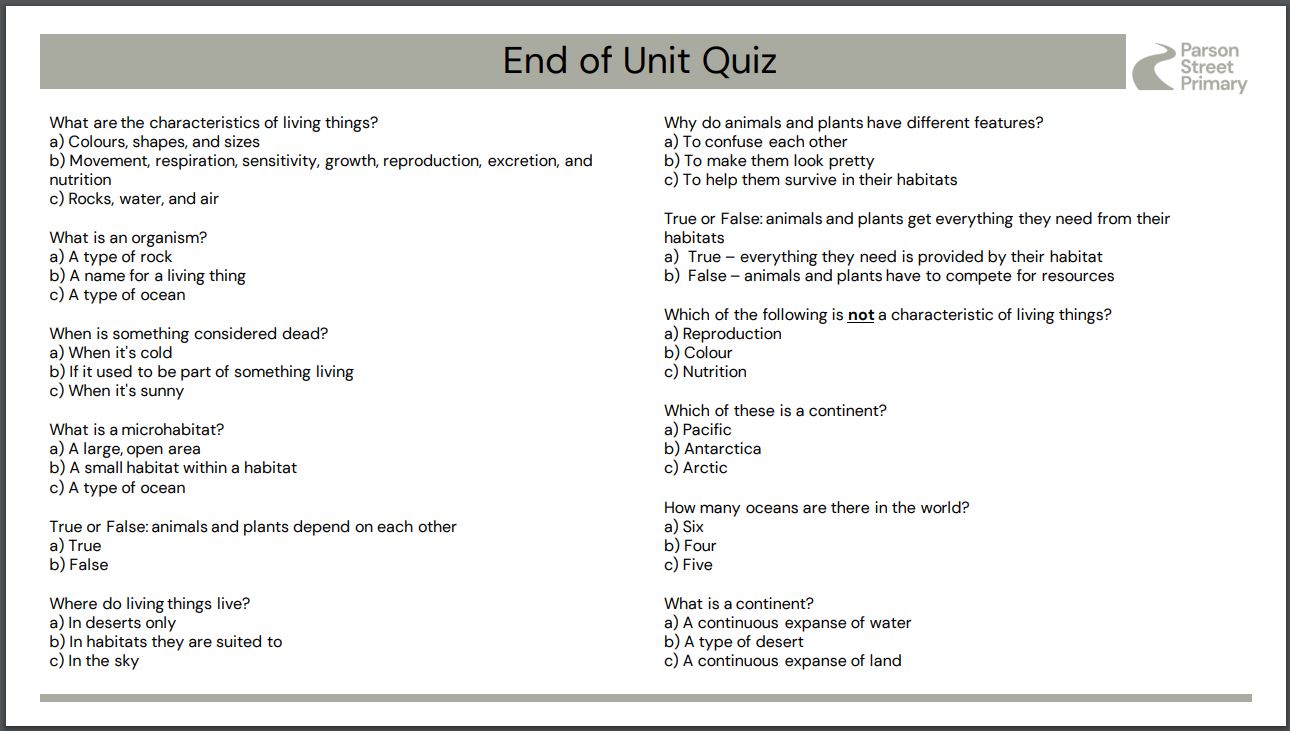
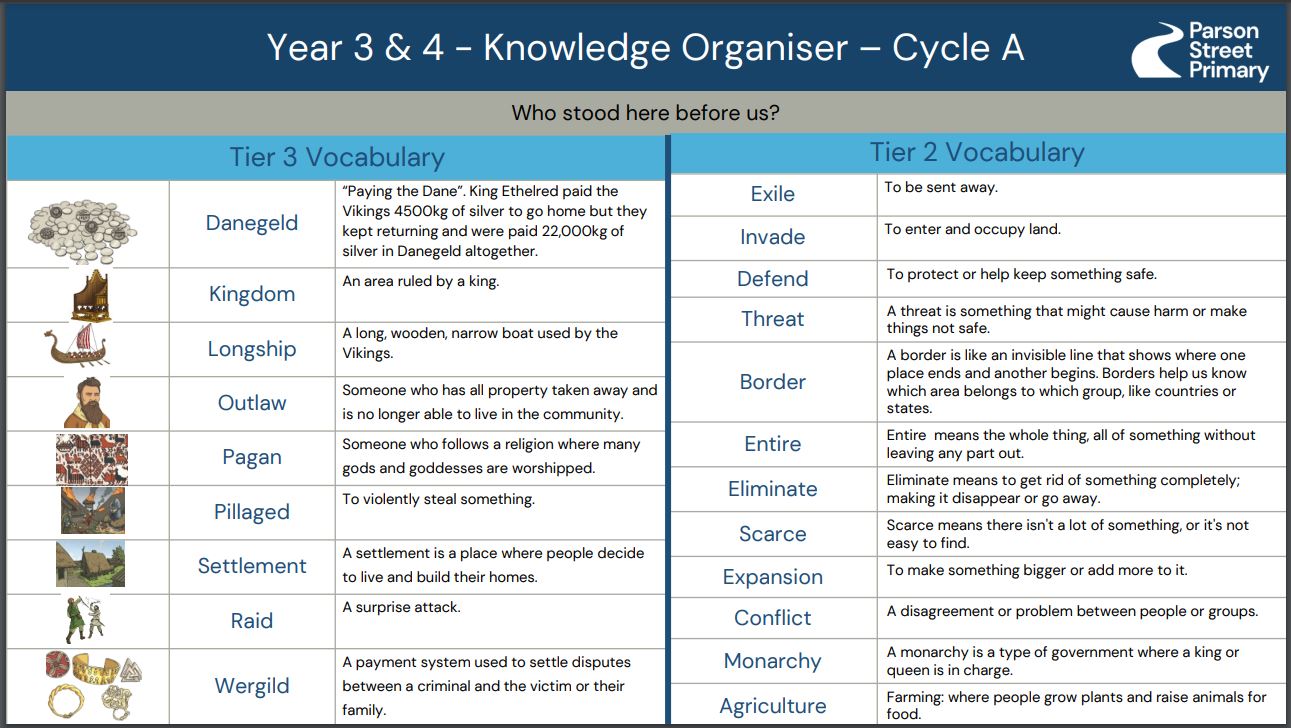
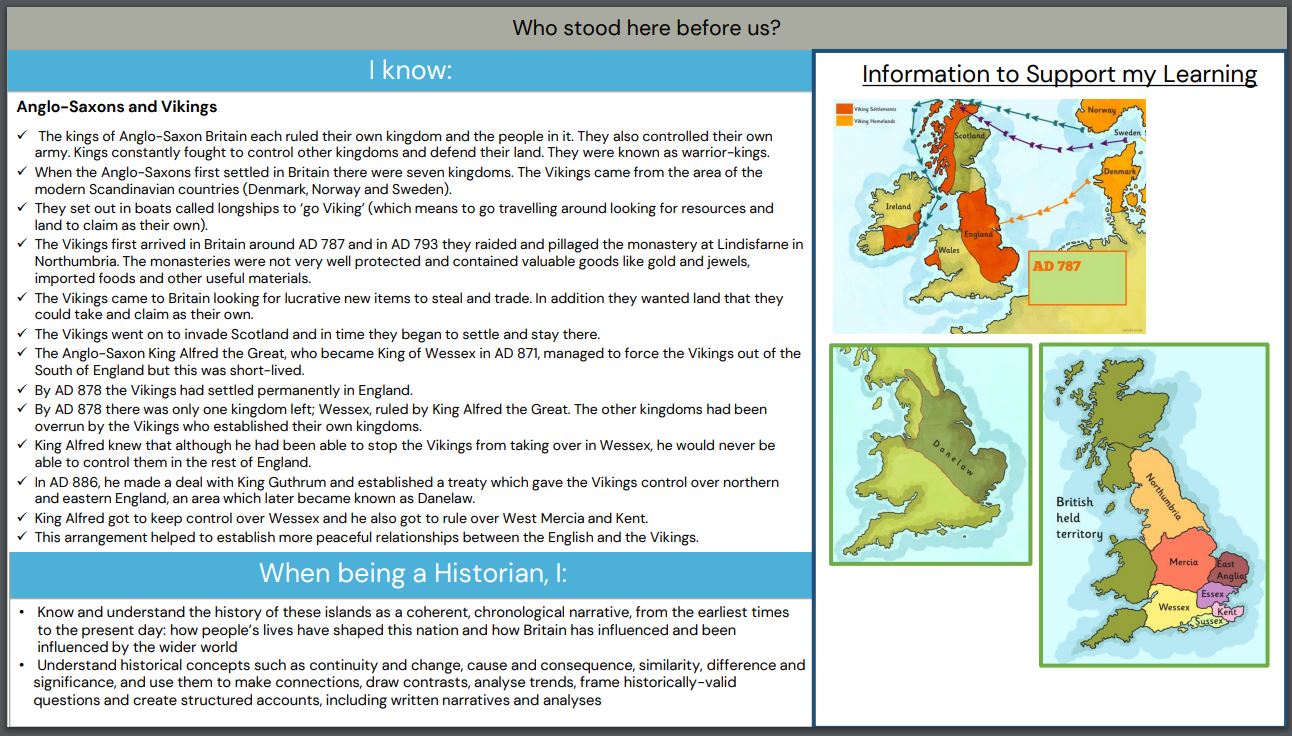
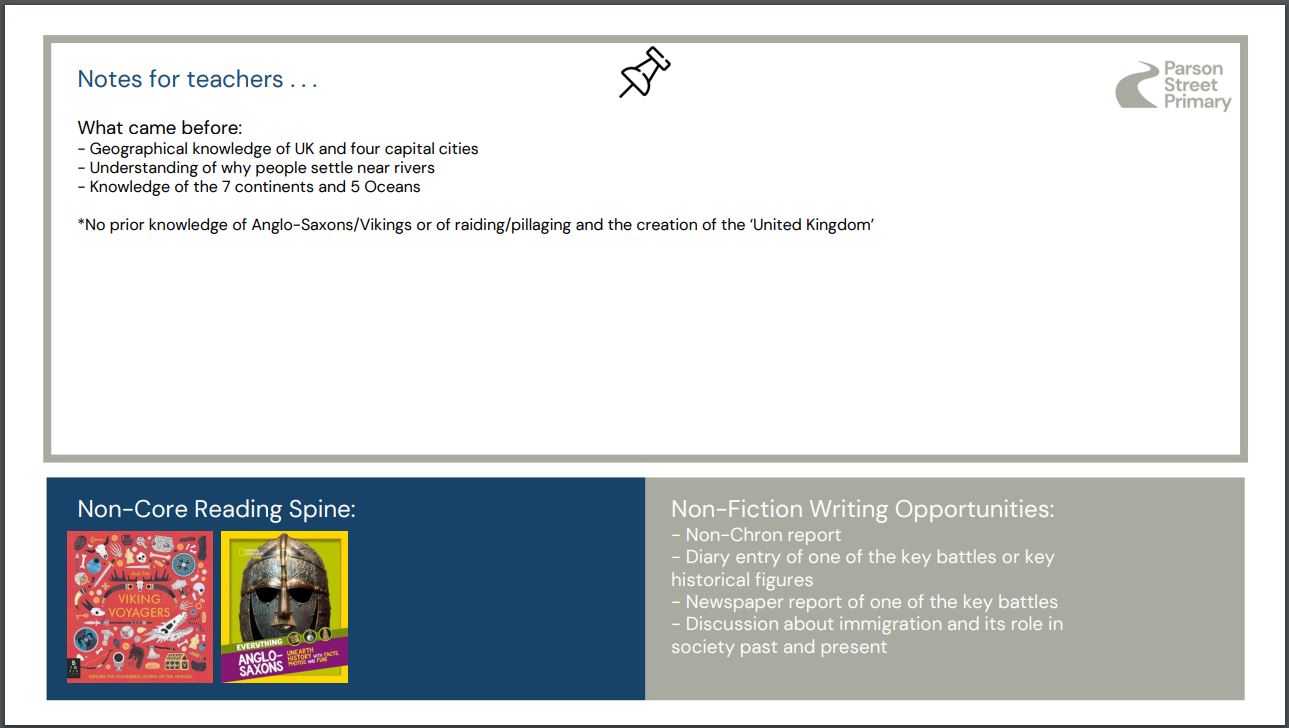
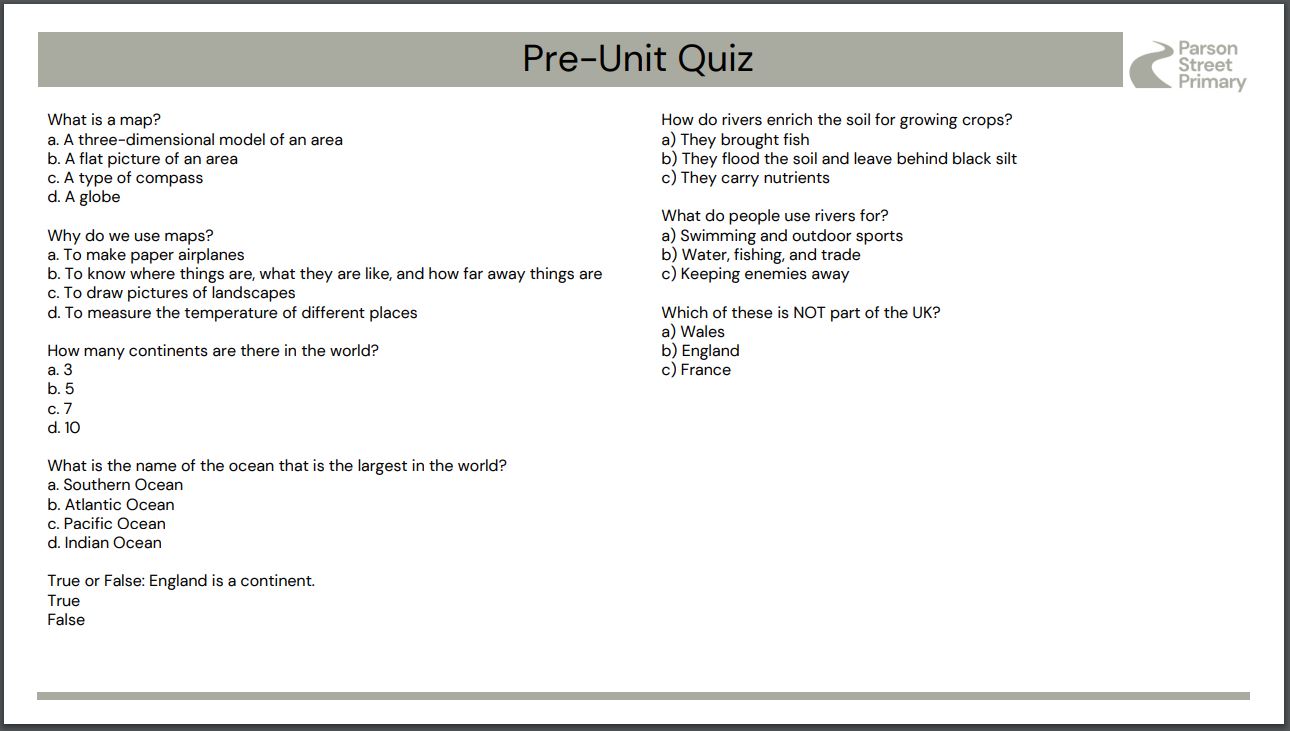
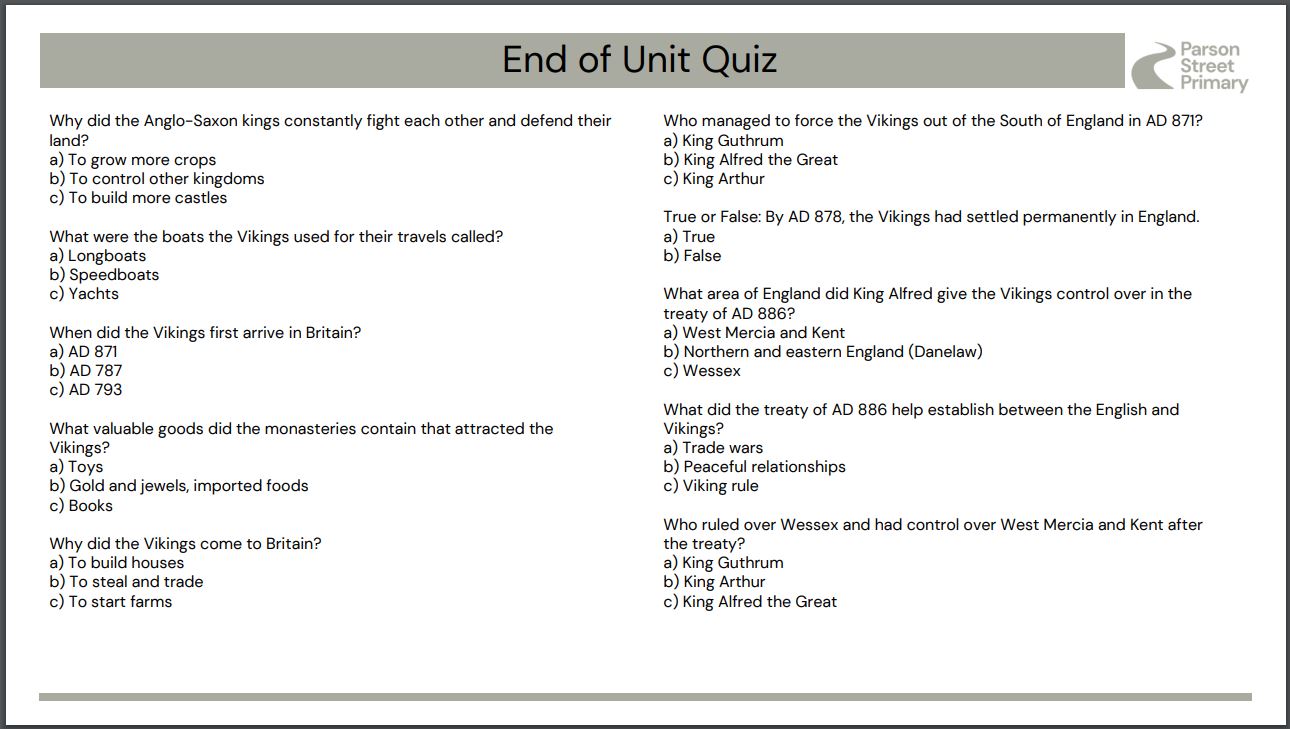
Disciplinary Knowledge and Skills
As well as understanding the vital role of substantive knowledge within our curriculum, we have also look at the development and building of disciplinary knowledge and skills. As children progress through the school, their understanding and application of different disciplines will develop as they become confident in becoming different states of being.
